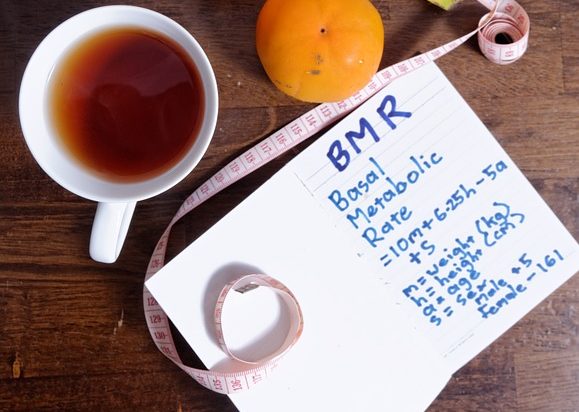Find Your BMR for FREE!!
BMR Calculator
This calculator calculates the Basal Metabolic Rate (BMR) using the Mifflin-St Jeor equation, which takes into account age, gender, weight, height, and activity level. It provides accurate estimations for different activity levels.
In the intricate orchestra of our bodies, there’s a vital conductor that often goes unnoticed – the Basal Metabolic Rate (BMR). BMR, often referred to as the body’s metabolic engine, plays a significant role in dictating how many calories your body needs to sustain its basic functions while at rest. Understanding BMR is not just an exercise in numbers; it’s a pathway to optimizing your health, reaching fitness goals, and making informed lifestyle choices. This article unravels the mystery behind BMR, its importance, and how it influences your daily life.
What is Basal Metabolic Rate (BMR)?
At its core, BMR represents the number of calories your body requires to maintain its essential functions, such as breathing, circulating blood, and regulating body temperature, while in a state of complete rest. In other words, it’s the energy your body needs to function optimally while you’re at rest, akin to a car idling.
Why You Should Know Your BMR
- Personalized Calorie Intake: Knowing your BMR provides a baseline for calculating your daily caloric needs. Armed with this knowledge, you can adjust your diet to match your activity level and weight goals, whether it’s weight loss, maintenance, or muscle gain.
- Avoiding Crash Diets: BMR acts as a compass, guiding you away from crash diets that promise rapid weight loss. Consuming fewer calories than your BMR for an extended period can lead to muscle loss and a sluggish metabolism.
- Strategic Exercise Planning: Integrating BMR into your exercise routine ensures you’re fueling your body appropriately. You can tailor your workout intensity and duration to complement your BMR, leading to more effective and sustainable results.
- Lifestyle Modifications: Armed with your BMR, you can make informed choices about your daily routine. This insight can guide decisions such as portion control, meal timing, and the frequency of meals and snacks.
Lifestyle Recommendations
- Balanced Nutrition: Align your diet with your BMR to ensure you’re providing your body with the right amount of energy. Consume a balanced mix of macronutrients – carbohydrates, proteins, and healthy fats – to meet your metabolic needs.
- Customized Meal Plans: Tailor your meal plans to your BMR and activity level. Distribute your calorie intake throughout the day to maintain a steady energy supply and prevent overeating.
- Physical Activity: Use your BMR as a starting point to determine how many calories you burn during exercise. Pairing your workouts with your BMR helps you create a calorie deficit for weight loss or a surplus for muscle gain.
- Mindful Eating: BMR encourages mindful eating. Tune in to your body’s hunger cues and eat when you’re genuinely hungry, avoiding unnecessary snacking or overindulgence.
- Hydration: Your BMR is intricately linked with bodily functions, including digestion and metabolism. Staying hydrated supports these processes, ensuring your body operates efficiently.
- Quality Sleep: Adequate sleep supports optimal BMR. Prioritize sleep to maintain hormonal balance and preserve muscle mass.
Basal Metabolic Rate isn’t just a number; it’s a gateway to a healthier, more informed lifestyle. By understanding your BMR, you can make tailored choices about your diet, exercise, and daily routine. Embrace your body’s unique metabolic rhythm, and let BMR be your guide on the journey to a balanced and vibrant life. Remember, the journey is personal, and your BMR is the roadmap to your destination of wellness.
Image by Andrew West from Pixabay
Weight Management
-

Debunking Food Myths For Weight Loss: Separating Fact from Fiction
When it comes to weight loss, there are numerous myths and misconceptions surrounding food. These myths can hinder progress and lead to ineffective or unsustainable strategies. This article aims to debunk common myths around food and weight loss, providing clarity and highlighting evidence-based approaches to achieving healthy and sustainable weight loss. Myth #1: Carbs Make…
-

Green Tea for Weight Loss: Why It May Work?
-

Can Apple Cider Vinegar Cause Weight Loss – Examining the Claims
-

Exercise Myths and Weight Loss: Debunking Common Misconceptions
-

The Link Between Weight Loss and Sleep: Exploring the Connection
-

Indicators of Health Beyond Weight: Exploring a Holistic Perspective
-

How Walking Can Help Shed Pounds and Maintain a Healthy Weight









Leave a Reply